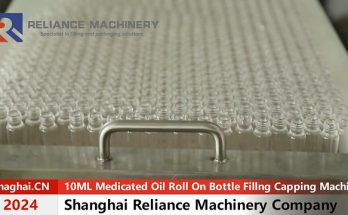Benefits of Industrial Water Treatment
Industrial water treatment includes a variety of processes to purify and recycle water within your company. These include filtration, disinfection, reverse osmosis and ion exchange.
Using proper industrial water treatment prevents scaling and deposits in boilers, cooling towers and other equipment. This enhances operational reliability and reduces energy costs.
Improved Equipment Performance
Industrial water treatment cleans water, extending the lifespan and efficiency of equipment. Without it, mineral salts and metal impurities can cause scale and clogging in boiler systems, cooling towers, and other equipment. This damages machinery and negatively impacts production quality.
Leak detection and water loss control devices prevent wasted water by detecting and minimizing leaks in the distribution network. Regular maintenance and upgrades also help reduce water losses. Water-efficient pumps, low-flow fixtures, and automated controls also optimize water usage.
Water recycling allows plants to reuse treated wastewater for non-potable purposes. This saves energy and money, while also contributing to a more sustainable future.
Ion exchange, UV disinfection, and other processes Industrial water treatment eliminate contaminants that can harm finished products. This protects product quality and customer satisfaction.
Optimized Energy Efficiency
Achieving optimal energy efficiency is a major benefit of industrial water treatment. The process helps reduce energy consumption and operational costs due to a reduction in scale formation and deposits on equipment like boilers, cooling towers, and heat exchangers.
Water filtration also helps businesses preserve the environment by preventing environmental pollution from untreated wastewater discharge. This helps protect ecosystems, maintain water supply, and ensure compliance with strict environmental regulations.
Water treatment includes a variety of processes such as filtration, deionization, water softening, and disinfection. These processes eliminate impurities that are detrimental to industrial processes, such as dissolved chemicals and microorganisms. Filtration removes sediment and organic material while reducing turbidity, chemical reactivity, and pH levels. A water softening unit passes streams of water through a cation resin to reduce hardness, while an Advanced Oxidation Process (AOP) uses oxidants such as Fenton’s reagent or Ozone to degrade harmful substances for discharge. Lastly, disinfection tanks use sodium hypochlorite to remove harmful bacteria. The result is high-quality, safe water for manufacturing purposes that meets industry standards and exceeds customer expectations.
Improved Product Quality
Enhanced product quality is a key benefit of industrial water treatment. By removing impurities and contaminants, the water treatment process safeguards equipment, minimizes product defects, and prevents downtime. This contributes to a high level of operational efficiency, productivity, and profitability.
In addition, industrial water treatment enables the reuse of water in different processes, which saves thousands of gallons of water each day and cuts costs related to energy consumption and wastewater disposal. Moreover, water-based industrial processes require a certain level of purity to optimize their performance and achieve required standards. Therefore, treating the water before it enters an industrial plant helps businesses meet regulatory compliance.
Besides, industrial water treatment prevents harmful substances from entering lakes, rivers, and oceans. In this way, it protects aquatic life and preserves ecosystems. Water treatment also reduces the strain on freshwater resources and promotes sustainable manufacturing.
Compliance with Regulations
Industrial operations are responsible for a large portion of the world’s water withdrawals. Efficient water treatment allows businesses to bolster productivity while staying in line with exacting environmental effluent discharge standards.
A specialized industrial water company can help companies achieve compliance with wastewater discharge regulations. They have the expertise to develop technically based local limits, prepare industrial pretreatment ordinances and enforcement response plans, assist with industrial user permitting, design and build industrial wastewater pretreatment systems, provide on-site monitoring for industrial wastewater dischargers and help companies comply with state and federal NPDES permits.
Chemical treatments can remove harmful substances and pollutants from the water used in industrial processes. These treatments include scale inhibition, corrosion control, biofilm control and advanced oxidation process (AOP). Water-saving measures like these can significantly reduce water consumption and improve the quality of the end products. They also ensure that industrial facilities are operating in accordance with environmental standards and demonstrate a commitment to sustainability. This can help businesses maintain their competitive edge. A sustainable water management strategy is an essential part of any business.
Environmental Responsibility
The water we use for industrial purposes often contains harmful substances that, if released untreated, can have an adverse effect on the environment and human health. Industrial water treatment eliminates these pollutants and contaminants before they can discharge into lakes, rivers, or oceans, safeguarding aquatic life, preserving ecosystems, and contributing to a more sustainable future.
Equipment Protection: Impurities in water can cause corrosion, scaling, and deposits on equipment, which leads to costly repairs and replacements. Efficient water treatment eliminates these problems and ensures that equipment operates safely and at maximum efficiency, lowering operational expenses.
Operational Reliability: Corrosion and scale build-up can reduce heat transfer efficiency and lead to unplanned downtime and disruptions in production. Effective treatment minimizes these issues, reducing operating costs and improving product quality and consistency.
Compliance with Regulations: Many industries must Outdoor water purification straw adhere to strict water quality regulations, and implementing an efficient treatment process ensures compliance and prevents penalties.
Many industries also reuse wastewater in their processes, a practice that lowers charges for water usage and reduces the amount of freshwater consumed. In addition, the energy used to heat or cool water can be recovered from recycled wastewater, further lowering costs and decreasing consumption.

